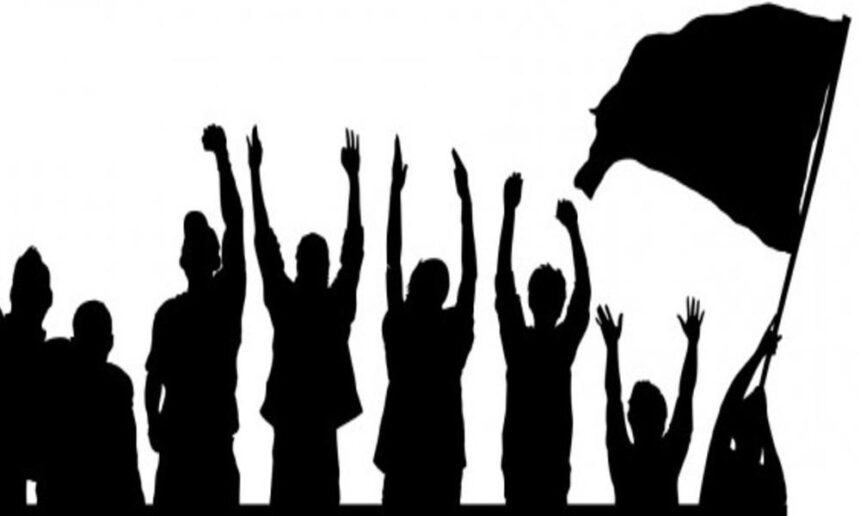In my previous column I wrote about how democratic dictatorship has settled in Mongolia. Now it is time to discuss about how we – the people – can fight and prevail against this dictatorship.
Although the form of democratic institutions remains the same, a dictatorship approach is currently infiltrating, taking advantage of economic hardships.
Democratura (democratic dictatorship) politicians who support a strict one-man rule are using democratic institutions to spread an ideology that contradicts with democratic values and creates doubt. A clear manifestation is the fact that those politicians have been increasingly advocating for Mongolia to have presidential system.
Those who have stolen from public funds are avoiding punishment and sneaking back into the government. Although our democratic institutions might look democratic on the outside, these institutions are now controlled by bureaucratic, oligarch, and criminal groups, and are being used to protect the interests of the elite groups that consist of democratura politicians. When the government has a growing number of unskilled employees who put their personal interests above all else, it accelerates the transition from democracy to dictatorship.
As the future of Mongolia’s democracy starts looking unclear, the two most important instruments that would protect our democratic values are civil society and independent media.
Democratic institutions, and the rights and responsibilities of civil society
When the civil society is less involved, the government operates with reduced oversight. This leads to a more closed government and increased corruption.
In a democracy, the owner of the government is the people. In other words, the government belongs to the people. Therefore, the civil society poses a strong influence over the government and its institutions. Every citizen must believe that they have a role in fighting for a healthier government by making legitimate demands. The people must express their beliefs and feelings on how efficient the government is spending their money, and how satisfactory they are with how the government is performing. The people have the responsibility to provide oversight, look into the issues caused by the corrupt officials, and ask questions.
On the other hand, the main purpose of democratic institutions is to represent the public interests and serve them. In order not to slip back into dictatorship, the people constantly need to reignite the activities of all democratic institutions. We should be directing the democratic institutions to spend their energy on protecting the rights and freedom of the people, and on building a democratic government that upholds the rule of law. These democratic institutions must be supporting the people to get on with their daily lives in the society and helping them to self-manage.
A democratic society requires the government institutions to put the interests of the people as their top priority when resolving public issues. The issues that need to be resolved by government institutions have to be well formulated, and the people must be allowed to assess how well these institutions are fulfilling their duties.
There are many different opinions around what social benefit is and how that can be achieved. These differing ideas lead to the establishment of different political parties. A multi-party system, which embodies different political powers and competition, prevents the ruling power and economic resources from being centralized under one person, and protects the society. It also allows new ideas to come out, and different solutions to be offered.
The detailed economic program proposed by political parties need to be ready even before the election preparation starts, and should already have the buy-in from the people. It is because there is never time to develop and think about the program during or after the election.
Public elections are an instrument for the people to shape their society. When an election takes place, the people should already have a good understanding of how the country is doing. The emerging leaders must be able to reform the judicial branch so that it benefits the people, get rid of corruption, stop the thievery from public funds, and reduce the bureaucracies.
In order to acquire the right to the ruling power, the elites must be able to demonstrate that they are protecting the public interests, operating transparently, and recruiting new members. Today our society has the expectation that the Democratic Party’s candidate for the presidential election would be their cleanest politician.
Conflict and independent media
In a democracy, it is important that social issues are discussed transparently and openly. It is essential that the decision making process is open and transparent, because democracy gives people the right to be informed. Public oversight is possible only when the decision making process is visible.
This public oversight must be exercised by the civil society and independent media, who follows all voting processes, including elections and impeachment votes, and starts public discussions.
Democracy is strengthened by conflicts that have the goal of understanding and implementing different ideologies, political opinions, and basic principles of democracy. Democracy is an instrument to express and resolve conflicts peacefully. Only the conflicts that may compromise democratic values might need to be resolved with force.
In a democracy that upholds the rule of law, the media not only feeds the society with information, but also poses oversight on the daily activities of the legislative, judicial, and executive branches of the government, public organizations and movements, and politicians.
In a democracy, everyone has the right to know the truth and be informed. Therefore, independent media must be allowed by the constitution to protect the freedom of speech, and ensure the principles of justice, truth, and respect for differing opinions.
The only way that Mongolia could be saved from democratic dictatorship today is that we – the people – must take up an active role in developing our civil society and strengthen the independency of our media.
2017.04.26
Trans.by B.Amar












